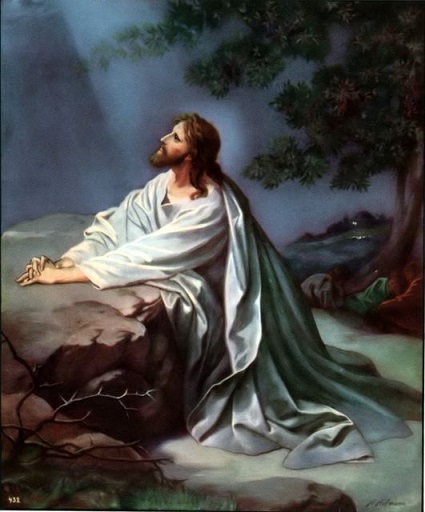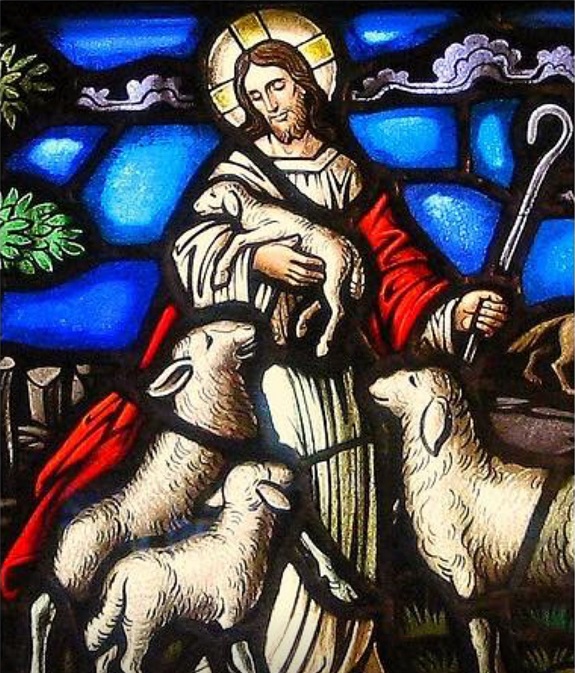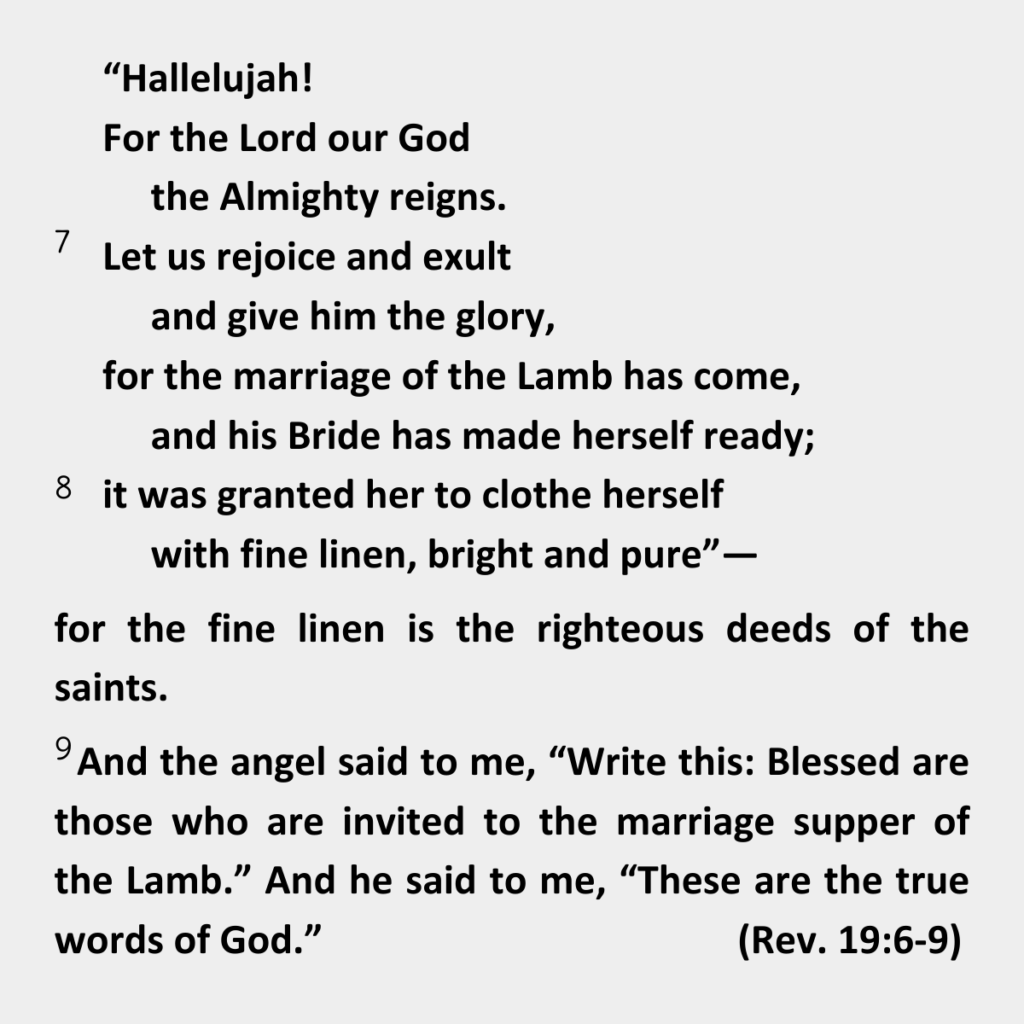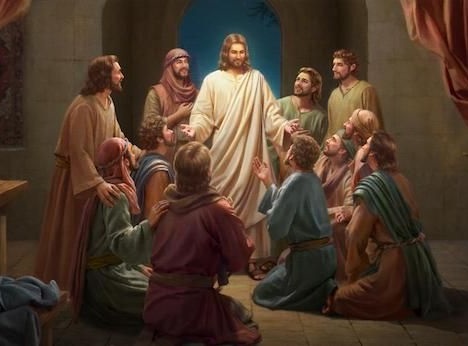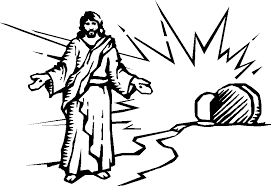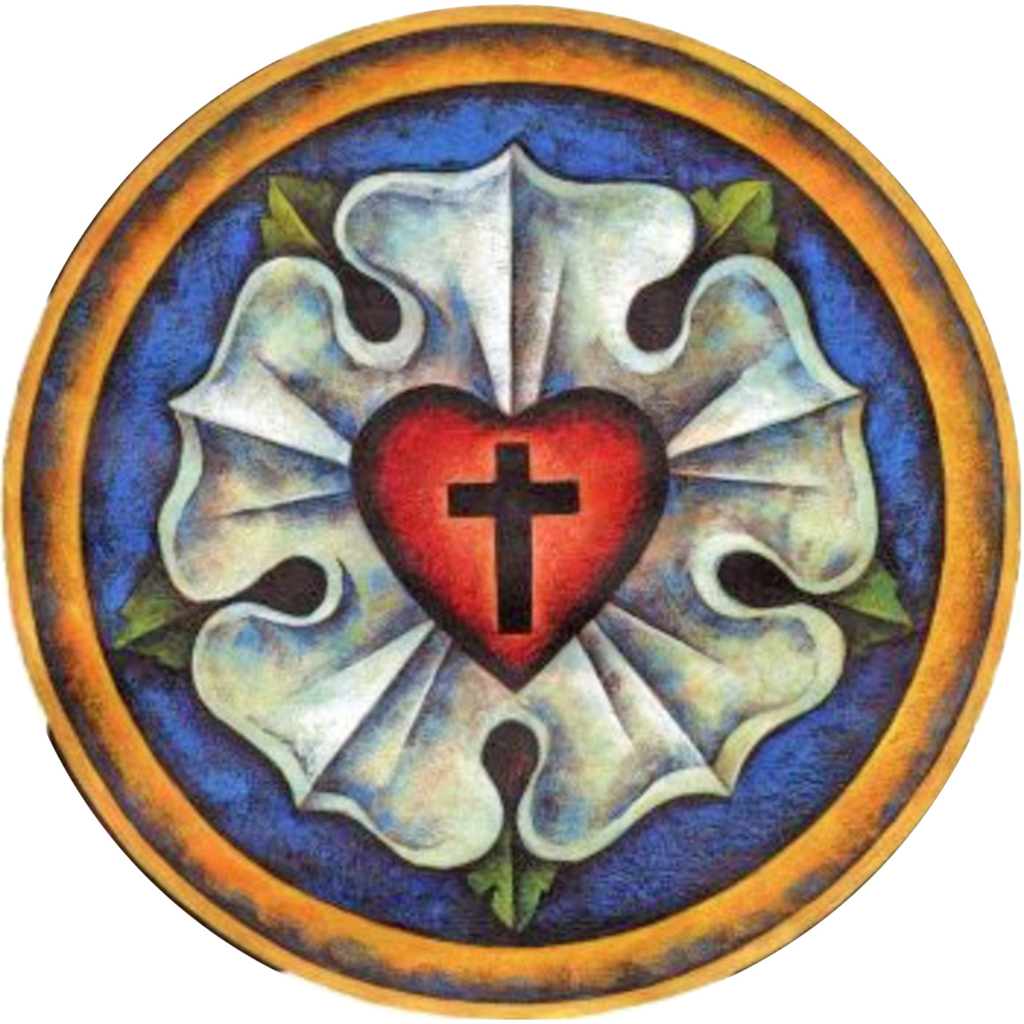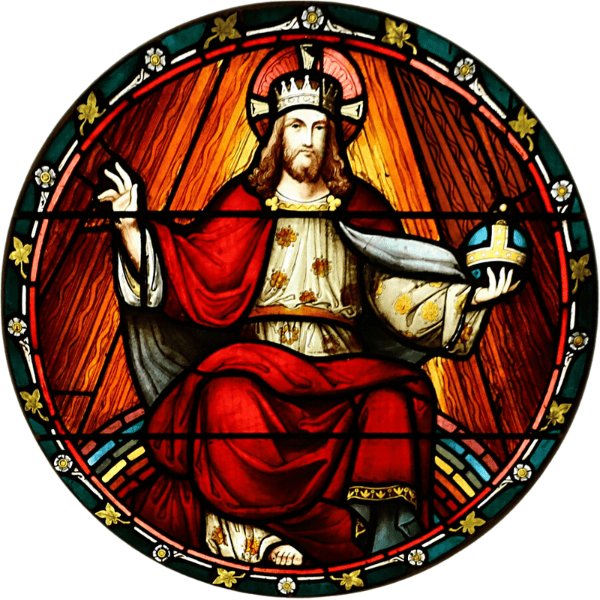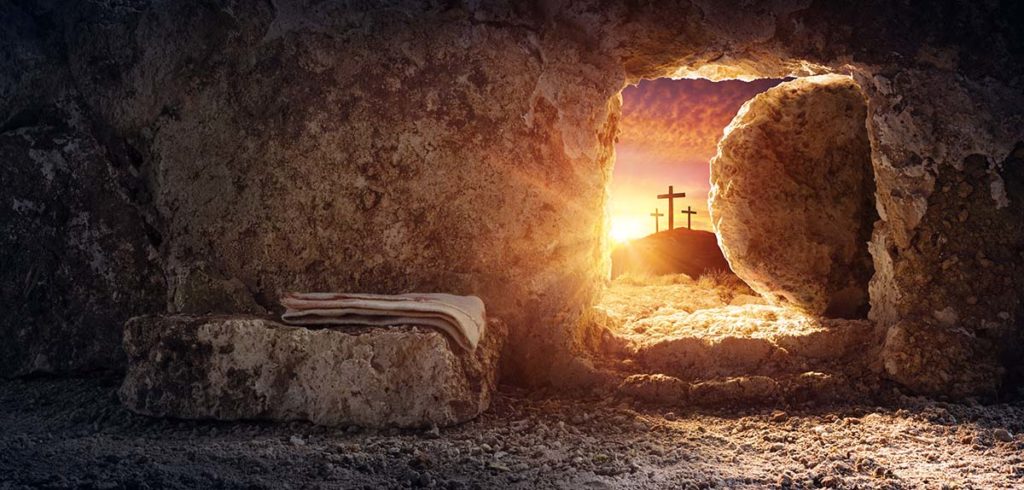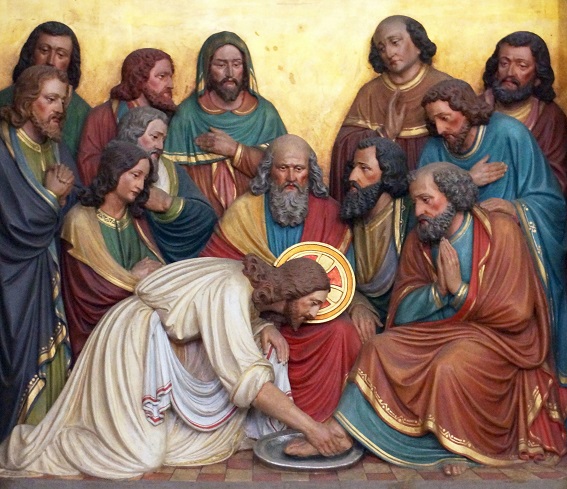~ Jubilate ~
Readings: Isaiah 40:25-31 | 1 Peter 2:11-20 | John 16:16-22

Text: John 16:16-22
Alleluia! Christ is risen! He is risen indeed, alleluia!
Among the many promises of God, we have our favorites:
“Though your sins are like scarlet, they shall be as white as snow; though they are red like crimson, they shall become like wool.” (Isaiah 1:18)
“When you pass through the waters, I will be with you; and through the rivers, they shall not overwhelm you; when you walk through fire you shall not be burned, and the flame shall not consume you.” (Isaiah 43:2)
“Whoever believes in me, though he die, yet shall he live, 26and everyone who lives and believes in me shall never die.” (John 11:25–26)
But there’s another promise which the Lord makes in today’s Gospel. It probably won’t make anyone’s list of favorites, or appear on any funeral bulletin cover: “Truly, truly, I say to you, you will weep and lament, but the world will rejoice. You will be sorrowful, but your sorrow will turn into joy.” This is a promise we can count on being true today: Truly, truly, I say to you—Amen. Amen—You will weep and lament, but the world will rejoice. He does not say, if your faith is not strong enough, you will weep. Nor does He say, if you go astray, you will lament. It’s true for every believer. If you follow Jesus, you will weep and lament. We should not be surprised when this life causes us grief and sorrow. “Beloved, do not be surprised at the fiery trial when it comes upon you to test you, as though something strange were happening to you.” (1 Peter 4:12)
Honestly, though, we’d rather not weep and lament. To avoid this sensation, we distract ourselves with other things. We think of better times. We hope the world isn’t all that evil, because it looks like they’re enjoying themselves. Or wait to be rescued from this place. We find our escape from this road by not being on it, in any way possible. In our prayers, we ask for this weeping and lamenting to go away. We pray to be anywhere else. Make the nightmares stop, make the grief and sorrow end, by taking us out of it, putting us somewhere else.

Is it then any wonder then why our world consumes so much entertainment? Are we surprised when so many people are way too busy for their own good? When’s the last time you had a truly quiet moment of reflection? Do not be so shocked by drug and alcohol addicts. They’re just doing what we do, only with stronger doses. We want to escape from suffering so badly, that many people will try anything. We will even judge God, whether He is good or not, by how well He can make our griefs disappear. But it never happens. He doesn’t do that. We are on the road to Emmaus. We do mourn and the bread indeed is bitter.
As one wise saint once told me at the death of her husband, we don’t have to like it. So, we don’t need deny it and pretend it’s not that bad. The hurt we experience is real when vows are broken. It really is a dreadful violation when your home is robbed. It’s painful to see like Walther League or a church choir, laid aside forgotten. You can’t deny that it cuts deep when you see your friends and peers in the obituaries. It’s not a figment of your imagination, and it does not mean your faith isn’t strong enough. “Truly, truly, I say to you, you will weep and lament, but the world will rejoice.” Don’t be ashamed to weep. Don’t struggle to put on a good face and hide it from your brothers and sisters in Christ when they ask you how you’re doing. You have the Lord’s permission to lament.
But Easter comes after Good Friday: “Your sorrow will turn into joy.” That’s the ultimate end of the promise, because Christ Himself has been to the grave. Sin unleashed its fury on Him. For three long days the grave did its worst, until by God its strength was dispersed.[1] Because God died for us, the sorrows of all who believe in Him will turn to joy.
Honestly, though, it can seems like shallow comfort in the midst of it. That’s what makes the analogy Jesus gives so appropriate: “21When a woman is giving birth, she has sorrow because her hour has come, but when she has delivered the baby, she no longer remembers the anguish, for joy that a human being has been born into the world.” (John 16:21) The suffering and anguish we face is like that of a woman in the throes of labor. The pain seems to go from worse to worse. Every moment excruciating. She just wants it to be over. Isn’t there any easier way? Any platitudes you try to offer her will be repaid with a punch to the gut: “In the end it will all be worth it!” “It could be worse.” “I know how you feel.” The only thing that will really help is when the baby is delivered. Then she can rest. Then the joy can truly be appreciated.

The time of joy is on the horizon. We are in the midst of labor pains, sorrow, weeping, and lamenting. But the risen Christ is our guarantee that we will have joy that will not come to an end, which no one will be able to take from us. As Psalm 30 so memorably puts it, “Weeping may tarry for the night, but joy comes with the morning.” (Ps. 30:5)
The world around us rejoices—celebrating the pleasurable things of this world like prosperity, youth, technological advancements, and other new ways to feed people’s insatiable appetite for enjoyment. They look down upon us, as if we’re living in the “dark ages” and accuse Christians of spoiling their fun with what they call hate speech. But it’s only because the truth is that this world is passing away. The deeds done on it will be judged, and only the repentant and believing will be saved. Together with God, we pray for this for the people of this world, because we have hope beyond this life.
Today, we celebrate the Day of Resurrection, the hope of the new creation already begun now that Jesus is risen from the dead. Even while we weep and lament in the old creation, we yet have a joy which no one is able to take from us—not the sadness of life, not the devil who lures us into despair and unbelief, not even the grave itself. Remember the words of St. Paul, “36 As it is written, ‘For your sake we are being killed all the day long; we are regarded as sheep to be slaughtered.’ 37 No, in all these things we are more than conquerors through him who loved us. 38 For I am sure that neither death nor life, nor angels nor rulers, nor things present nor things to come, nor powers, 39 nor height nor depth, nor anything else in all creation, will be able to separate us from the love of God in Christ Jesus our Lord.” (Rom. 8:36-39)
Really, it’s hard to imagine what that will be like now, yet we follow our Lord. He was taken away from us for a little while as He lay dead and buried, but He rose on the Third Day (just as He said He would, and just as the Scriptures foretold). All who belong to Him will likewise follow Him through the sorrow, the weeping, the dying…and the rising! He promised that this would happen, and He promised that He will give us the strength to bear our labors until He gives us rest in death and ultimately resurrected life.
In that Day, the words of Psalm 66 which we prayed at the beginning of the service will be entirely fulfilled: “Shout for joy to God, all the earth. Sing the glory of his name; give to him glorious praise!” (Ps. 66:1-2) In the Name + of Jesus. Amen.

[1] Christ is Arisen! Alleluia! (LSB 466, st. 2)


